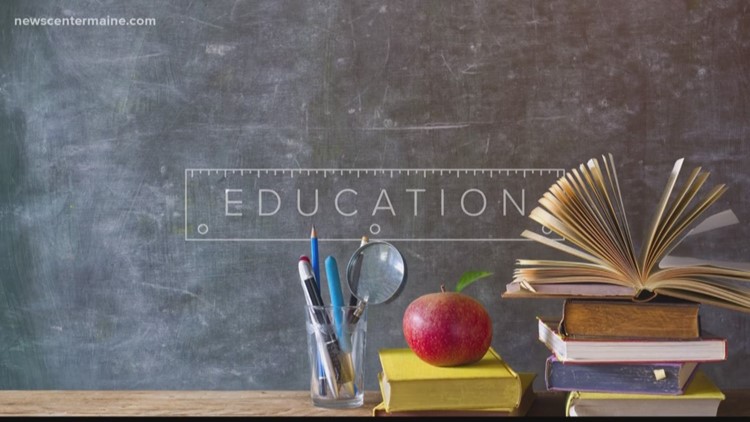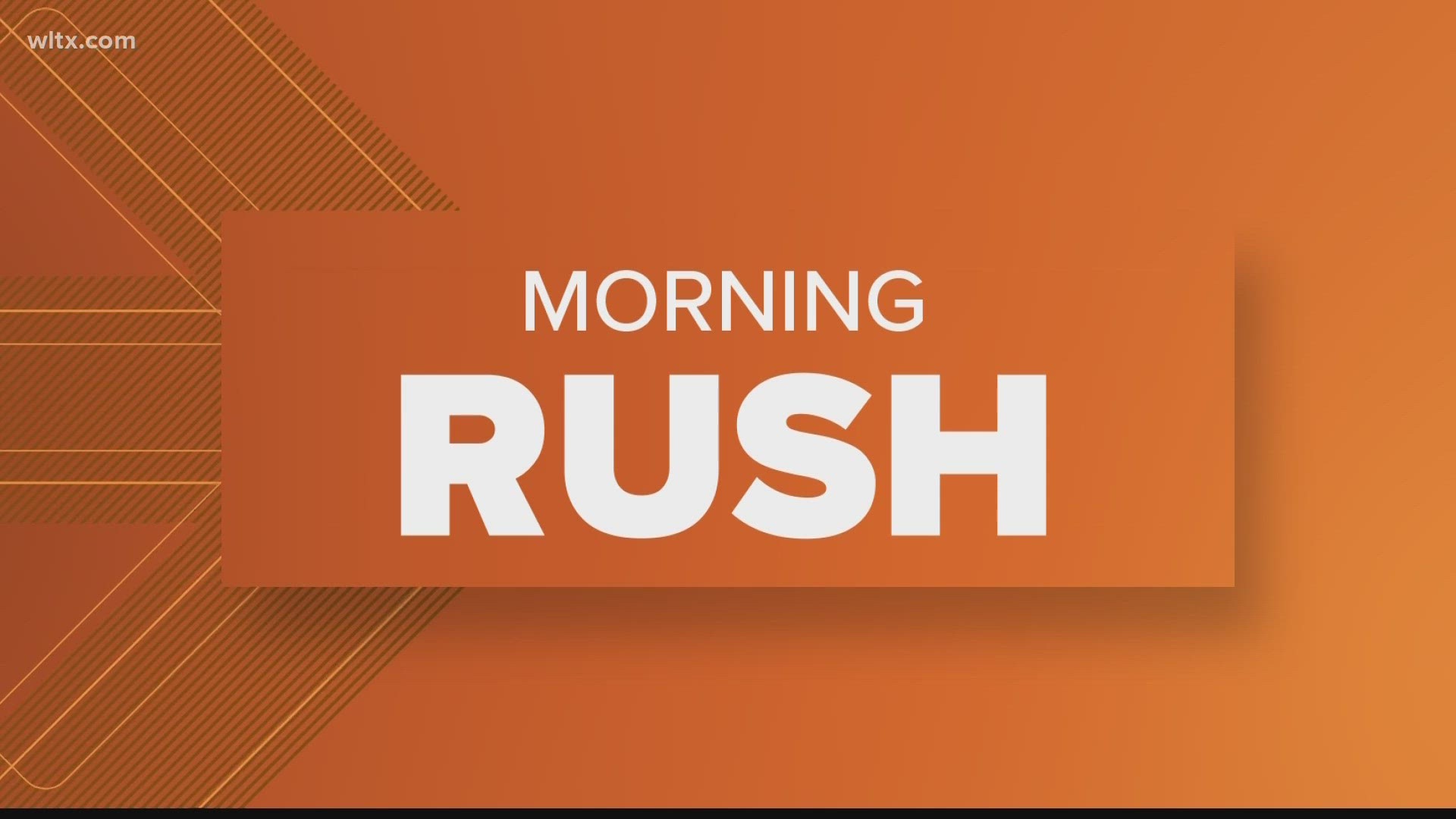State Education Superintendent Molly Spearman released updated guidance for South Carolina teachers as schools remained closed in response to the coronavirus pandemic.
On March 15, 2020, Governor McMaster, through Executive Order 2020-09, closed all South Carolina public schools through the end of March. Executive order 2020-15 extended school closures through the end of April.
In a memo to teachers on Tuesday, Superintendent Spearman issued guidance related to instructional deadlines for seniors, reporting information in PowerSchool and waiver of specific provisions in regulations relating to minute requirements for instructional time in light of the novel coronavirus (COVID-19) and school closures.
Standardized Testing, Assessments & Screenings
State Superintendent of Education Molly Spearman says the U.S. Department of Education (USDE) has approved South Carolina's assessment and accountability suspension waiver that was submitted as a result of the COVID-19 pandemic.
RELATED: U.S. Dept. of Education waives S.C. education assessment requirements due to COVID-19 pandemic
Therefore, South Carolina will not administer any of the following assessment programs for spring 2020:
- SC READY (English language arts and mathematics in grades 3–8);
- SCPASS (science in grades 4 and 6);
- End-of-Course Examination Program (English, Algebra, Biology, United States History and the Constitution) the requirement that these examinations count 20 percent has been waived;
- Literacy Screening (PALS Pre-K), Individual Growth and Development Indicators (myIGDIs), and Teaching Strategies GOLD);
- Prekindergarten assessments – 4-year-old kindergarten (Phonological Awareness; and
- Alternate Assessments
Additionally, the waiver allows flexibility for the state’s accountability system so that designations made in fall 2019 will remain in effect for one additional year.
The following requirements under the Every Students Succeeds Act (ESSA) were also waived:
- English language proficiency assessment;
- ESSA required 95 percent participation rate on federally-required assessments;
- Alternate measure of achievement (which is South Carolina’s “Growth” metric on the report card);
- Student success or school quality metrics (which in South Carolina is the “Student Progress” metric, the “Student Engagement” metric, and the “College and Career Readiness” metric); and
- Certain public reporting requirements.
Second Semester Courses & Grading
To accommodate the flexibility granted by the USED, Spearman says final grade calculations are being revised. The S.C. Department of Education (SCDE) has outlined the following guidance for how to address grading for the remainder of the year:
During the second semester, students should have the opportunity to:
- Complete the courses in which they are currently enrolled;
- Complete the courses in which they would have enrolled in during the fourth quarter (i.e. Economics);
- VirtualSC will be opening a special enrollment for graduating students needing to take Economics. The course will run from April 6–30, 2020. Schools that have a need for their students should contact VirtualSC at virtualsc@ed.sc.gov for registration and course information.
- Enroll in any credit recovery courses needed;
- For those interested, VirtualSC credit recovery course registration will begin on Wednesday, April 1, 2020. Courses will begin every Monday starting on April 6, 2020, for students who have received approval from their school.
- Demonstrate mastery in an effort to improve a course grade; and
- Finalize dual credit courses offered jointly with higher education institutions.
To accomplish these goals and give districts the ability to sufficiently report grades, SCDE says it is re-framing the structure of the second semester so that only one final semester grade will be reported. The semester grade will reflect work completed and mastery demonstrated during the third and fourth quarters combined, but will not be reported as two separate grades. Grades currently stored for the third quarter should be considered as interim reporting. The semester grade should be composed of all third quarter grades, as well as those grades deemed appropriate by the district to assure competency or provide remediation. Any quarter long credit-bearing courses scheduled for the fourth quarter should be directly reported in the semester grade.
The one final semester grade will be applied for any student enrolled in a credit-bearing course.
All credit-bearing courses should follow the requirements of the Uniform Grading Policy (UGP), with numerical grades recorded. This will help to maintain equity across schools and districts for scholarship considerations.
Guidance Relating to Seniors Only:
While all students have been impacted by COVID-19 related school closures, Spearman says every effort is being made to ensure that high school seniors have the opportunity and adequate period of time to earn the necessary credits for on-time graduation.
The period of time for course completion, demonstration of mastery, and course remediation must be finalized by May 15th. All grades for seniors should be entered into PowerSchool by May 22nd.
Unless further guidance is provided, Spearman says deadlines for all other students should follow the current calendar of the district. For a student whose eligibility under special education terminates due to graduation with a regular diploma, or due to exceeding the age of eligibility, the district must provide the student with a summary of the student’s academic achievement and functional performance (SOP), which includes recommendations on how to assist the student in meeting his/her post-secondary goals.
If a student is failing (prior to the school closure), he/she would be given the same opportunity provided to all similarly-situated students (guidance will be coming out soon in this area). If the student will be able to graduate, an SOP must be provided. If the student will not meet graduation requirements even with the additional options provided in the forthcoming guidance, the Individual Education Plan (IEP) team would conduct the annual review, when appropriate, and continue providing services as per the IEP. The IEP team does not need to meet to provide the SOP to the student, but a conference should be scheduled with the teacher and student to go over the SOP and to answer any questions.
Regulation Waivers
Due to the various facets of distance learning taking place during this unprecedented situation, the following specific provisions related to seat time/minute requirements and assessments within Chapter 43 (State Board of Education) of the South Carolina Code of Regulations have been waived:
43-231 (Defined Program K–5):
- II. Basic Program/Curriculum, Grades 1–5
- “Instruction in the subject areas shall be scheduled for each student for a minimum of 1800 minutes or 30 hours per week including lunch, or the equivalent time on a yearly basis.”
- “The school day must be at least six hours including lunch, or its equivalent weekly.”
43-232 (Defined Program 6–8):
- I. Basic Program/Curriculum for Grades 6–8
- “Instruction in the subject areas shall be scheduled for each student for a minimum of 1800 minutes or 30 hours per week including lunch, or the equivalent time on a yearly basis.”
- “The school day must be at least six hours including lunch, or its equivalent weekly.”
43-234 (Defined Program 9–12):
- I. Requirements for Earning a South Carolina High School Diploma
- “E. The student must pass a high school credit course in science in which an end-of-course examination is administered.”
- II. Provisions for Schools in Awarding of High School Credit
- “B. A school may award one unit of credit for an academic standards based course that requires a minimum of 120 hours of instruction. A school may award one-half unit of credit for an academic standards-based course requiring a minimum of 60 hours of instruction and one-fourth unit of credit for an academic standards-based course requiring a minimum of 30 hours of instruction.
- "D. A school may award credit for those gateway courses that are a part of the End-of-Course Examination Program only if a student takes the course approved by the school in which he or she is enrolled and meets all the stipulated requirements of the End-of-Course Examination Program. (For specific regulations regarding end-of-course tests, see Reg. 43-262, Assessment Program.)”
- VI. Other Program Requirements
- “C. Length of School Day (1) The instructional day for secondary students must be at least 6 hours, excluding lunch, or the equivalent weekly.”
- “E. Additional Regulatory Requirements:
- 1. Due to federal requirements, all students must take a science course for which an assessment is given.
- 2. For state accountability purposes, every student must take an end-of-course examination in biology.”
43-262 (Assessment Program): See above for summary of suspension of assessments for spring 2020.
Other Information for Districts:
Individual Graduation Plans (IGP) should be completed and reported by the end of the current academic year. Considering the impact of the school closure period, schools may complete IGPs virtually or over the phone.
If Summer Reading Camps (SRCs) are in session, the SCDE offers the following guidance:
Districts should use any formative assessments and teacher recommendations currently in place to determine which students should attend SRC. To the extent possible, identified students should include first, second, and third grade students who are in need of additional support to meet ELA grade level standards. Districts can communicate SRC attendance to parents on a timeline that best meets the needs of the district.
Mandatory third grade retention is based on performance on the ELA portion of SC READY, which is suspended for the current school year. Retention at third grade, as well as any other grade, should not be based on any one assessment, but a collection of data points that may include formative assessments, teacher-made assessments, quarter grades earned, and prior parent notification and input.
If you have questions or need assistance, please email edl@ed.sc.gov.



